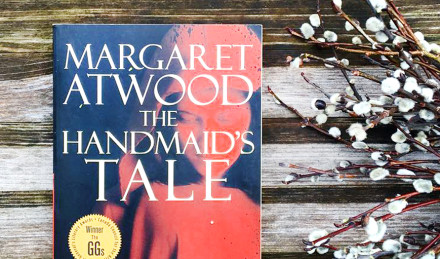Spring is the time of year when creatures emerge from hibernation, birds return from the tropics and flowers burst into bloom. It’s a time to discover, explore and venture into new territories. For this season’s book suggestions, we chose works that espouse fresh perspectives. With out-of-the-box content, form and style, these books will get your imagination sprouting with new thoughts on nature, humanity, the past and the future.
‘The Handmaid’s Tale’ by Margaret Atwood
Atwood’s imaginative work of speculative fiction envisions a dystopian view of the future. Taking place in the Republic of Gilead, “The Handmaid’s Tale” imagines a society run by a theocratic military government that separates women into distinct roles. The narrator (called Offred) is a handmaid, and her only job is to bear a child for the wife and “commander” of the house. If Offred fails to fulfill her responsibility, she will be sent to the dreaded colonies with the other “unwomen.” This is as much the story of Offred’s survival within a repressive regime as it is an anthropological study of a tyrannical society. Atwood’s chilling novel offers insight into how warped morality can be used to justify the erosion of freedom. This acclaimed novel will also be making its small screen debut as an original drama on Hulu.
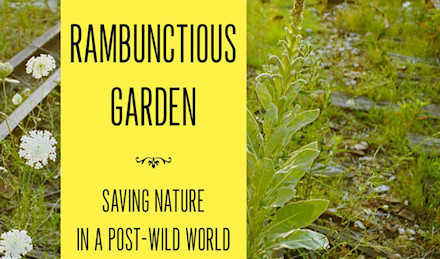
‘Rambunctious Garden: Saving Nature in a Post-Wild World’ by Emma Marris
In this brilliant meditation on modern environmentalism, writer Emma Marris calls for a shift in how we view nature. Marris proposes a vision that recognizes humanity’s longstanding role in shaping – and being shaped by – the environment. She takes readers around the world from the tropical Hawaiian Islands to the primeval forest of Białowieża in Eastern Europe. In visiting these areas that have been deemed to represent “pristine” nature, Marris explains that even these supposedly “untouched” ecosystems have been profoundly influenced by humans. The author optimistically suggests that we should see the world as a free-growing garden in which we coexist alongside plants and animals. “Rambunctious Garden” is a refreshing read and will transform the way we see our own neighborhoods.
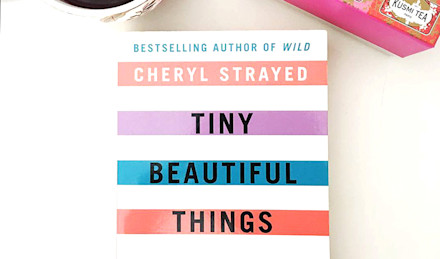
‘Tiny Beautiful Things’ by Cheryl Strayed
“Tiny Beautiful Things” collects the best of The Rumpus’s “Dear Sugar” advice column, offering perspective on life’s many questions. How do you advise a soon-to-be-bride stressed by fervent wedding planning? What do you say to a man who wonders when to tell his girlfriend he loves her? How do you approach a woman who is paralyzed by the loss of her unborn child? Bestselling author of the memoir “Wild,” Cheryl Strayed’s voice of reason is both honest and light-hearted. Strayed’s thoughtful responses reflect the spectrum of emotional experience, from sorrow to jubilation, self-doubt to confidence and confusion to lucidity.
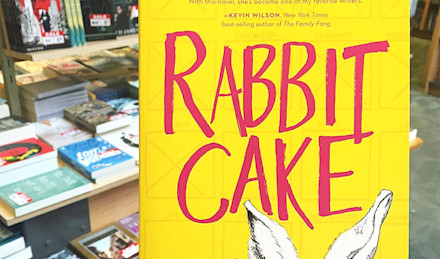
‘Rabbit Cake’ by Annie Hartnett
Annie Hartnett’s darkly comic debut novel, “Rabbit Cake,” centers on Elvis, a brainy teenager investigating the strange circumstances of her mother’s death. Each of the characters inhabiting Elvis’s world are distinguished by uniquely creative quirks – a sister who “sleep-eats” and a father who pines for a parrot that mimics his late wife’s voice. In the style of other imaginative geniuses like Dr. Seuss and Roald Dahl, the humans in the story are far more puzzling than the animals. Elvis finds comfort with the occupants of a nearby zoo in her Alabama town. Through the eyes of an independently minded heroine, “Rabbit Cake” explores grief with soulful humor.
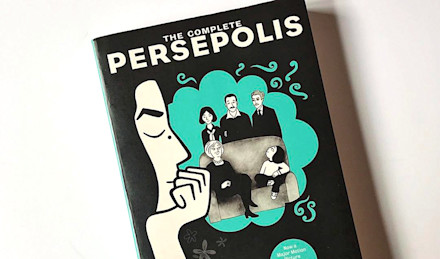
‘Persepolis’ by Marjane Satrapi
Marjane Satrapi’s graphic autobiography offers a poignant portrayal of life in Tehran around the time of the Iranian Revolution. Modeled after the author’s own life, “Persepolis” is narrated by Marji, a precocious girl who reads books on French philosophy and dreams of becoming a prophet. A product of forward-thinking parents living within a traditionalist society, Marji offers a wise and humorous perspective on the increasingly fundamentalist laws taking effect around her. While Marji’s classmates and neighbors flee the country and occasionally disappear without notice, Marji goes to school, makes friends and gets into fights with her parents, showing that even in the chaos of 1970s Iran, life goes on for Marji and families like hers.
